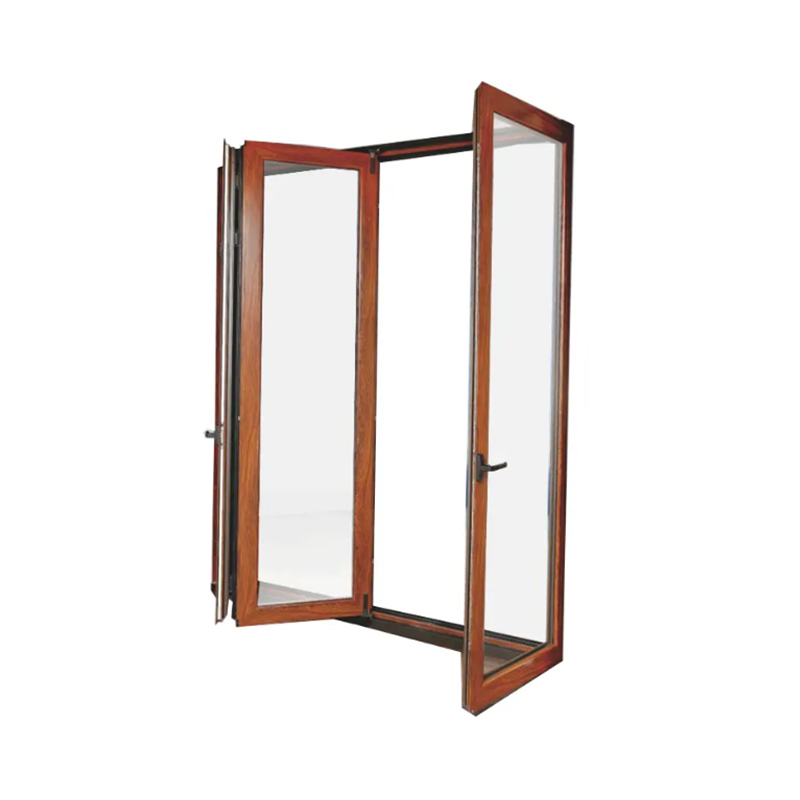Send inquiry
Windows are an essential part of any building, providing natural light, ventilation, and a visual connection to the outside world. Over the years, the materials used for window frames have evolved significantly, with aluminum alloy windows emerging as one of the most popular choices for both residential and commercial buildings. Known for their strength, aesthetic appeal, and energy efficiency, aluminum alloy windows are rapidly becoming the preferred option in modern construction.
Aluminum alloy windows are known for their sleek, modern design, which is not only functional but also highly customizable. The lightweight nature of aluminum makes it easier to install, and the material can be extruded into a variety of shapes and sizes to suit different architectural styles. Additionally, the aluminum frame can be coated or anodized in different colors and finishes, adding to the aesthetic versatility of these windows.
One of the most significant advantages of aluminum alloy windows is their exceptional durability. Aluminum is naturally resistant to corrosion, meaning that these windows can withstand exposure to harsh weather conditions, including rain, wind, and snow, without deteriorating over time. This is particularly important in coastal areas or regions with high humidity, where other window materials, such as wood, may warp or rot.

Aluminum alloy windows are also strong and able to support large panes of glass, which makes them ideal for large windows or modern architectural designs that require expansive views and minimal frame visibility. The strength of aluminum ensures that the windows maintain their shape and structural integrity over many years, providing long-lasting performance.
Although aluminum is a good conductor of heat, modern aluminum alloy windows are designed to minimize heat transfer. This is typically achieved through a thermal break, which is a layer of non-metallic material inserted between the inside and outside parts of the window frame. This thermal break reduces the amount of heat that can pass through the frame, making aluminum alloy windows more energy-efficient than traditional aluminum frames.
Energy-efficient aluminum alloy windows help in maintaining comfortable indoor temperatures, reducing the need for excessive heating and cooling. This can result in lower energy bills and a more sustainable living or working environment. Additionally, these windows can be paired with double or triple glazing to further improve insulation and soundproofing.
Aluminum alloy windows offer a sleek, contemporary look that is ideal for modern architecture. The material can be extruded into narrow frames, allowing for larger glass areas and providing unobstructed views of the outside. This makes aluminum alloy windows especially popular in buildings where maximizing natural light and outdoor views is a priority, such as in offices, high-rise buildings, and luxury homes.
Furthermore, aluminum alloy windows are available in a variety of finishes, including anodized, powder-coated, or painted options. These finishes provide additional protection against environmental factors and can be customized to match the style and color scheme of the building. The versatility of aluminum allows it to complement various architectural styles, from traditional to contemporary.
Aluminum alloy windows require minimal maintenance compared to other window materials like wood. They do not need to be sanded, painted, or sealed regularly, and they are not prone to issues like warping, cracking, or rotting. A simple cleaning routine using water and mild detergent is usually enough to keep aluminum alloy windows looking great. Additionally, the corrosion-resistant properties of aluminum mean that these windows are less likely to accumulate dirt, mold, or mildew, making them easier to maintain in the long term.
Aluminum is a highly recyclable material, which makes aluminum alloy windows an environmentally friendly option. The production of aluminum uses less energy than producing many other materials, and the metal can be recycled indg its strength or quality. By choosing aluminum alloy windows, property owners contribute to reducing waste and supporting sustainable building practices.
Aluminum alloy windows are versatile and can be used in a wide range of applications, including:
Aluminum alloy windows are commonly used in homes, especially in modern and minimalist designs. They can be used for large picture windows, sliding doors, and bi-fold doors that open up living spaces to outdoor areas.
Aluminum alloy windows are a popular choice for office buildings, shopping malls, and commercial spaces due to their durability, security, and aesthetic appeal. Their ability to support large glass panes is particularly beneficial in high-rise buildings or buildings that require expansive views.
The strength of aluminum allows these windows to be used in high-rise buildings, where large windows are needed to provide natural light and panoramic views. Additionally, aluminum alloy windows' resistance to the elements makes them ideal for such structures.
Due to their energy efficiency and recyclability, aluminum alloy windows are often used in green building projects and LEED-certified buildings. They help reduce energy consumption and promote sustainability.
While aluminum alloy windows offer numerous benefits, they also come with some challenges:
Aluminum alloy windows tend to have a higher upfront cost compared to other window materials such as PVC or wood. However, their long-term durability and low maintenance needs can offset the initial investment over time.
Without a thermal break, aluminum windows can experience condensation on the inner surface of the frame in colder climates. However, most modern aluminum alloy windows feature advanced thermal insulation, which mitigates this problem.
While thermal breaks have improved the insulation properties of aluminum alloy windows, they still may not be as naturally insulating as materials like wood or uPVC. This can be addressed by pairing aluminum windows with high-performance glass options.